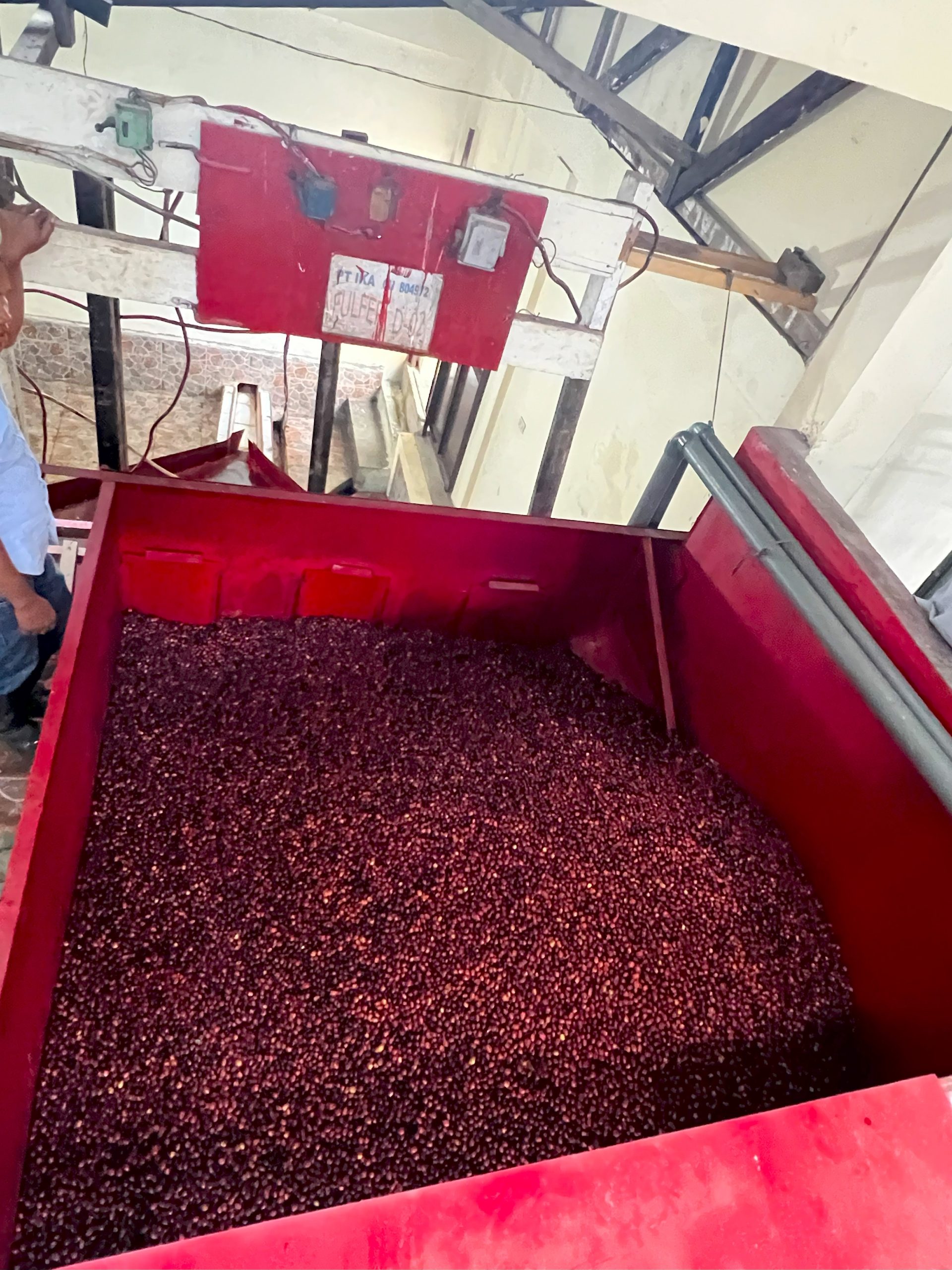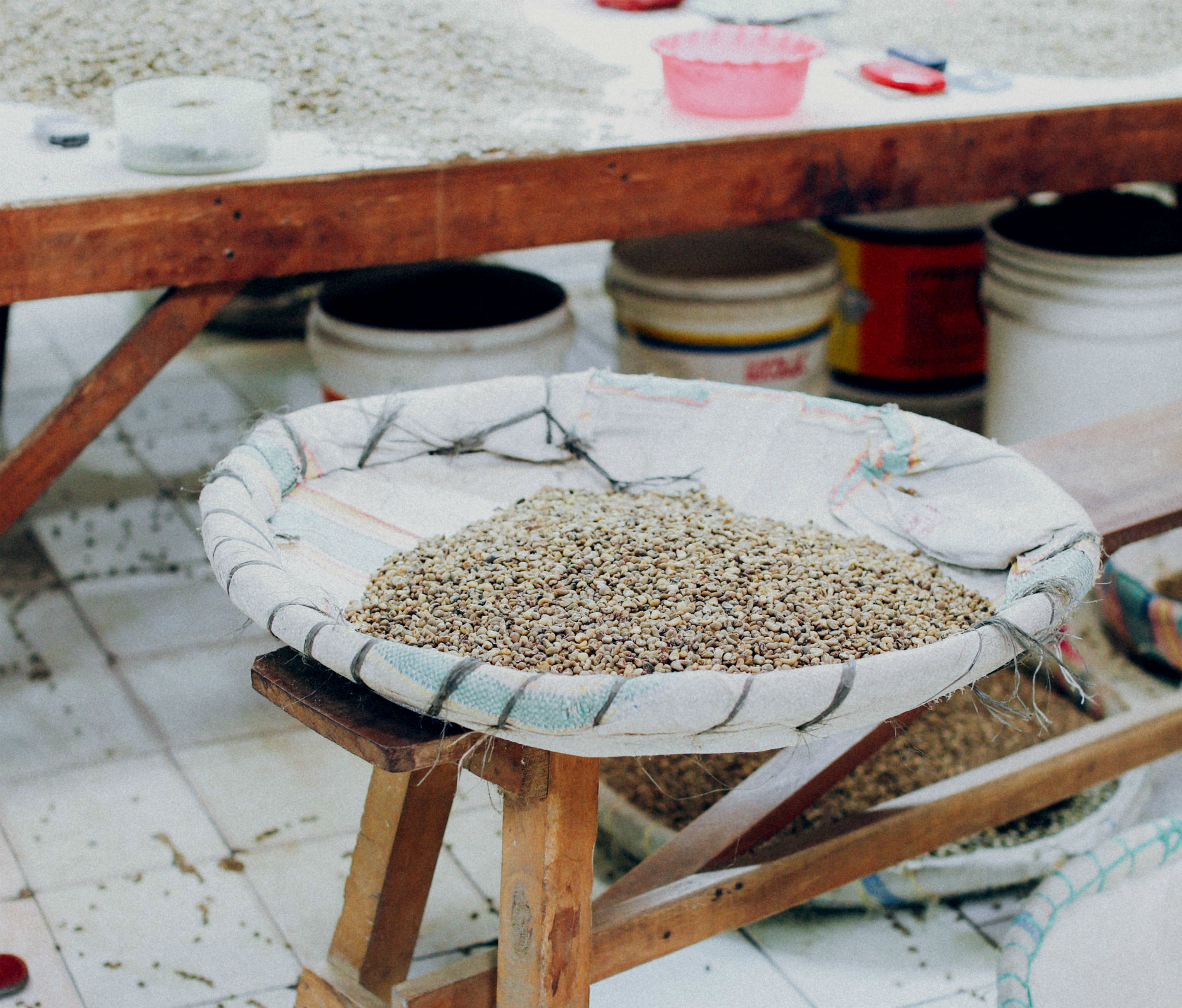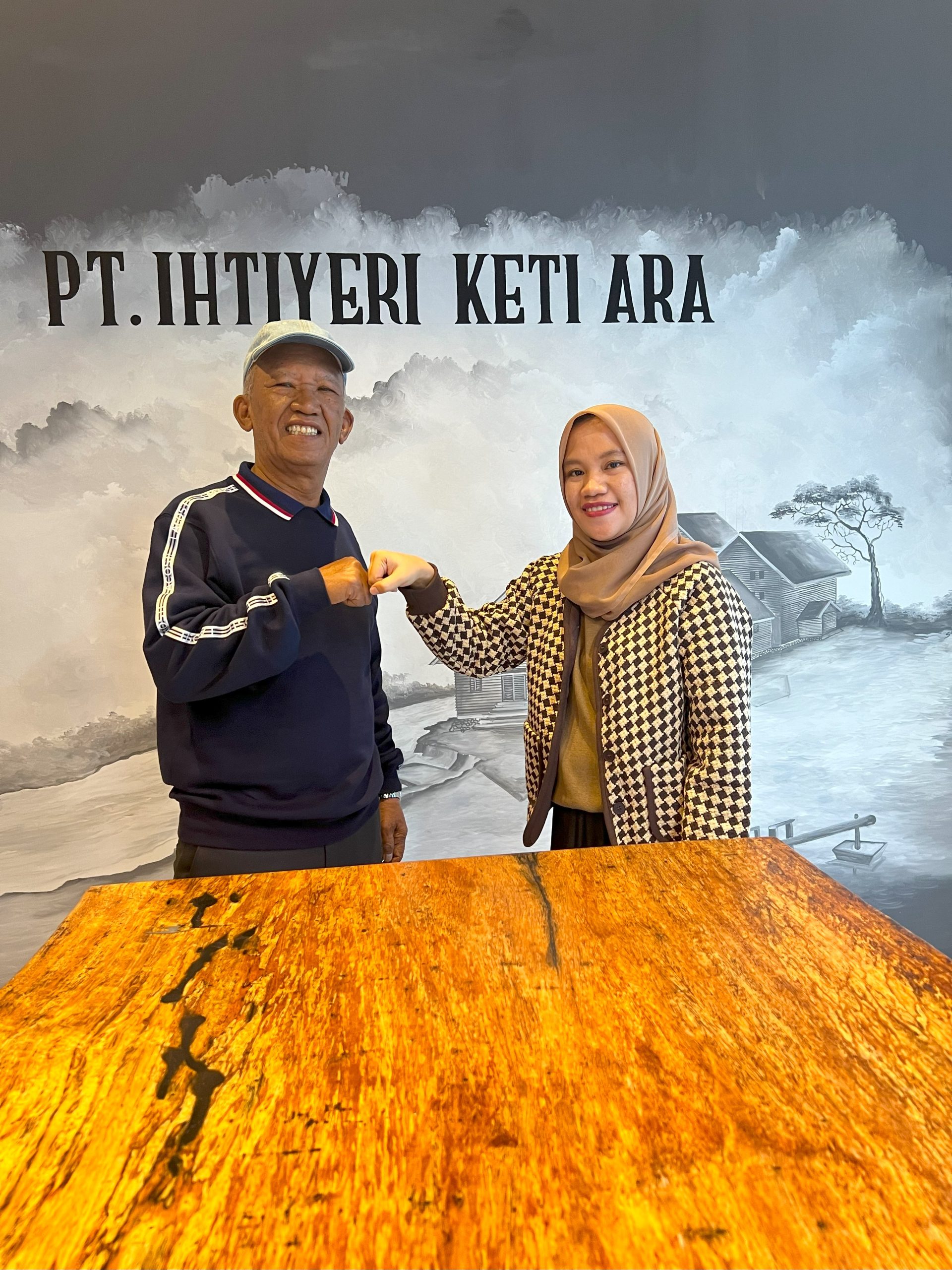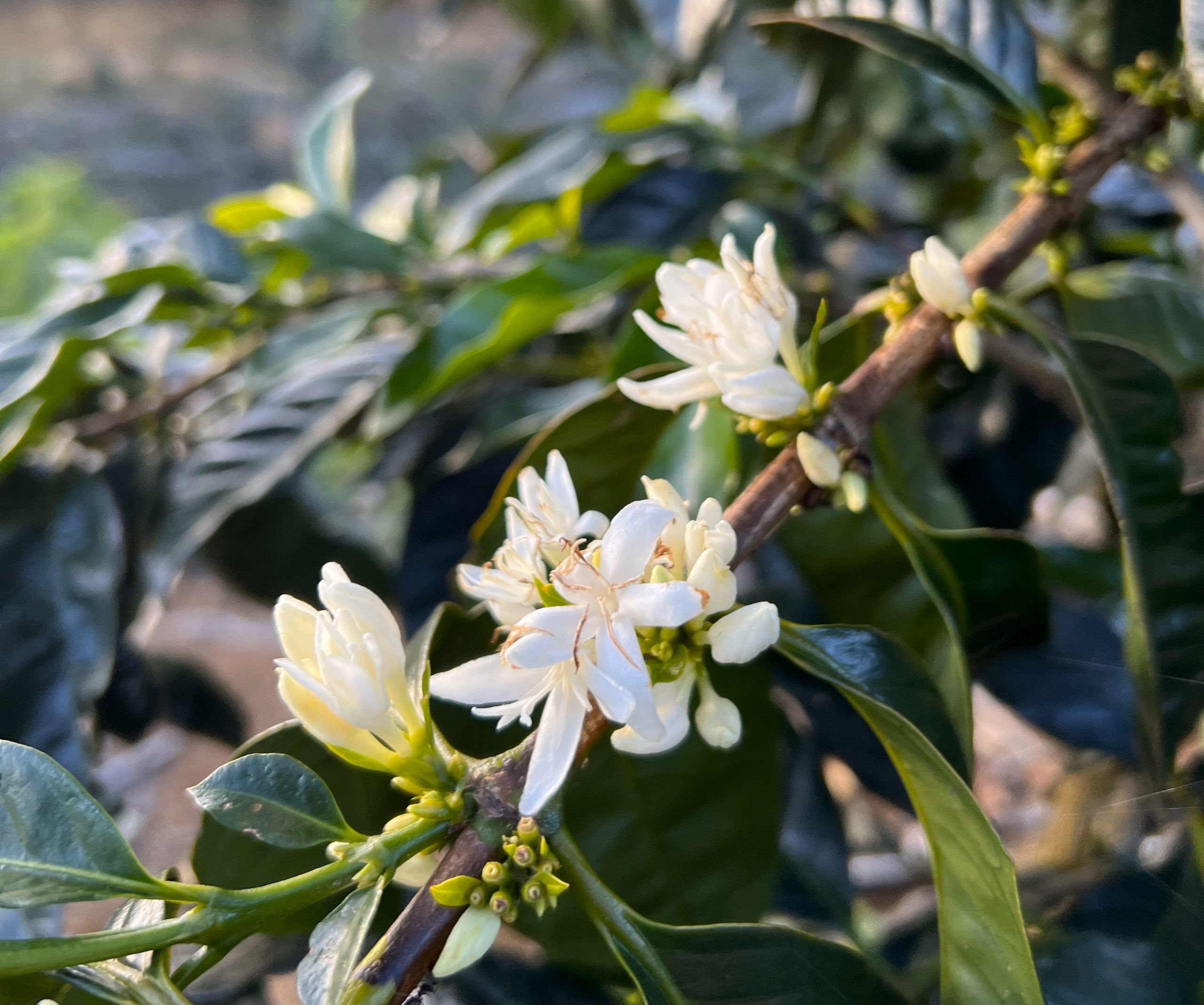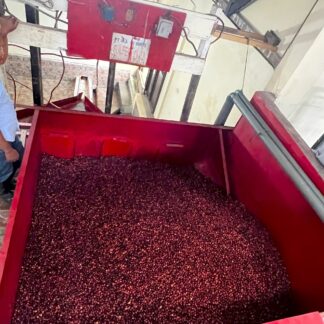Sumatra Takengon IKA Mandheling
Description
From our awesome importer:
Welcome to Aceh
“Aceh (pronounced AH-CHEY) is the northernmost province of Sumatra. Its highland territory, surrounding Lake Tawar and the central city of Takengon, is considered to be the epicenter of one of the world’s most unique coffee terroirs. Coffee farms in this area are managed with the experience of many generations of cultivation, while also harmoniously woven into their surrounding tropical forests. The canopies are loud and fields are almost impenetrably thick with coffee plants, fruit trees, and vegetables, all of which are constantly flushing with new growth. Year-round mists and rain showers never cease, farm floors are spongy and deep with layered biomass, and almost every square meter of the region seems to exude life. Nothing is ever still. Including coffee ripening, which occurs ten months out of the year.
IKA and the Gayo Identity
Ihtiyeri Keti Ara is a family supply chain and exporting business based in the city of Takengon and currently run by Irham Yunus and his daughter, Farina Ramadhani. The company works with multiple different cooperatives in the immediate region, collecting, processing, milling, and exporting coffees of many different sortings and profiles. Farmer contributors, typical for this area, average only a few hectares each and are spread across the hillsides of the Bener Meriah and Aceh Tengah Regencies, which together circle the immediate highland ranges north and south of Lake Tawar.
PT IKA, along with many local industries in the region, identifies itself as “Gayo”, after the Gayonese ethnic group which has long made Aceh their home, and which comprises a vast majority of farmer members.
Regional coffee distinctions in the northern provinces of Sumatra were originally (though not anymore) all based on human ethnicity, rather than geography itself. “Mandheling” for example, is a broad label for a widespread cultural group in Sumatra and Malaysia and subsequently the broadest coffee trading term, applying to almost any chosen blend of wet-hulled coffees from across the northern half of the island. “Batak” is a Mandheling sub-ethnicity based around Lake Toba and considered a regional coffee pedigree unto itself, and often marketed as such. These terms are malleable, and it is often difficult to pinpoint a coffee’s exact origin without direct partnerships that allow buyers to trace the entire value chain themselves. “Gayo” is another such sub-ethnicity, which continues to have a very strong identity locally in Aceh, often appearing on exports, restaurants, and clothing stores in the region that cater to Gayonese traditional designs.
How Wet-Hulling Works
Sumatra’s smallholder coffee is a complicated process, thanks in large part to Aceh’s very small farm sizes and consistently humid and drizzly climate that makes prolonged parchment drying impractical to do. Processing is typically not overseen by a single individual or team; instead, coffee moves task by task through different hands before reaching its final, fully-dried, state.
IKA follows the local processing customs closely, beginning with farmers picking cherry and selling to local collectors. Collectors aggregate cherry from their local neighborhoods and either process themselves, or deliver to local processors. In processing, cherry is for density, depulped, and fermented overnight. The following morning the fermented parchment is washed clean with spring water and spread out on tarps to dry directly in the sun. After the parchment is dry to the touch, often only a matter of hours depending on the time of day, it is transferred again to a local miller, who mechanically hulls the parchment from around the coffee seed, which is notably still has a moisture content close to 40% at this time (thus earning the coffee its “wet-hulled” label). The miller will proceed to continue drying the wet, naked coffee seeds on tarps under the direct sun.
Final dry milling is done centrally by PT IKA in Takengon. The fact that they export from the city means containers are filled, sealed, and transported directly from the highlands to port with minimal time in Sumatra’s humid coastal city of Medan, an extremely key step for retaining quality in Aceh’s coffee.“
Rich aroma with classic Sumatra earthiness, and dark chocolate. Heavy but smooth body in the cup with nuances of earthiness, Dutch cocoa, and subtle hints of cherry and tropical fruit.
$10.00 – $19.95

